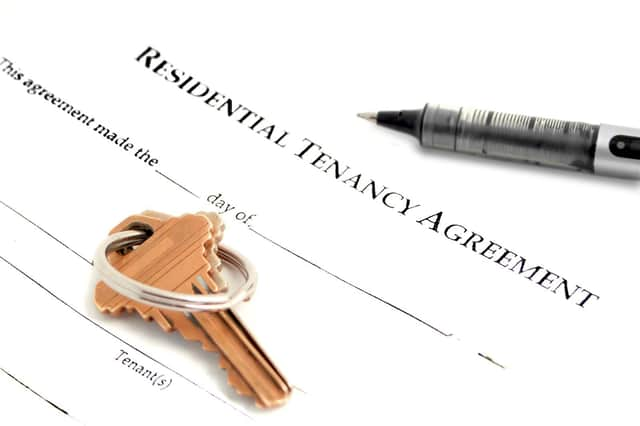Buy to let tax changes have seen some landlords sell up but it could still be a good investment


There’s no denying that recent tax changes have made the buy-to-let market less attractive for investors. Yet it’s still a tempting option with the potential for excellent financial returns. However, Donna McCreadie, partner and property specialist at Perrys Chartered Accountants, believes it is still a viable investment.
She says: “The demise of the buy-to-let market has been much predicted over recent years. Major tax changes, a three per cent stamp duty surcharge and increasing regulation have undoubtedly deterred some from entering the market.
Advertisement
Hide AdAdvertisement
Hide AdExisting landlords have questioned the viability of their portfolio, and some have made the decision to sell up while house prices are on the increase. Indeed, a recent survey by Nottingham Building Society found that a fifth of landlords are considering selling all, or part, of their portfolios. Yet this means that 80 per cent are still keen to retain their assets, suggesting that predictions of a mass exodus of landlords is highly unlikely to happen any time soon.”
Here, Donna lists the continuing benefits of investing in buy-to-let property. Competitive mortgage deals. After a Covid-induced lull, summer 2021 saw a surge of competitive buy-to-let mortgage deals, with many lenders increasing maximum loan to value (LTV) amounts from 75 per cent to 80 per cent. This means that potential investors do not have to raise quite such a hefty deposit to secure a mortgage. For example, on a purchase price of £300,000, the deposit at 75 per cent LTV would be £75,000, while at 80 per cent LTV it would be a more attractive £60,000.
Despite talk of inflation and a potential increase in the Bank of England base rate, interest rates on all mortgages remain historically low. Rise in rental demand. Buying an investment property is the first step, but how can you be sure of finding a tenant? The good news is that rental demand has picked up significantly since the last UK lockdown ended in spring 2021.
The estate agency trade body Propertymark reported a record number of new prospective tenants registering for homes in May. In June this year, there was an average number of five viewings before a property was let, indicating strong demand.
Advertisement
Hide AdAdvertisement
Hide AdIncreased regulation. In recent years the number of regulations has increased. While these measures may eat into a landlord’s time and profit, they have been introduced for a good reason. Landlords have a responsibility to ensure tenant safety and rectify any repairs or faults within a reasonable time frame. In the long term this can only be a benefit as the English
Housing Survey shows that 83 per cent of private renters are very or fairly satisfied with their accommodation. Your investment has the power to grow. With interest rates continuing to remain low, cash kept in savings accounts has little or no return. Historically, property in the UK has proved a sound investment.
Despite a property value crash at the start of the 1990s and following the 2008 global financial crisis, house prices have risen over the long term. In 1980 the average property cost was around £20,000 and today it is £250,000.
This means there are two potential profit channels: rental yield and a good return if you sell. There are, of course, start-up costs and taxes so it pays to speak to an accountant with expertise in the buy-to-let market before committing to a purchase.
Advertisement
Hide AdAdvertisement
Hide Ad